India and Pakistan: Nations on brink of ‘nuclear war’
As tensions rapidly rise between these two nations, the world must be prepared for a “nuclear war”, experts warn.
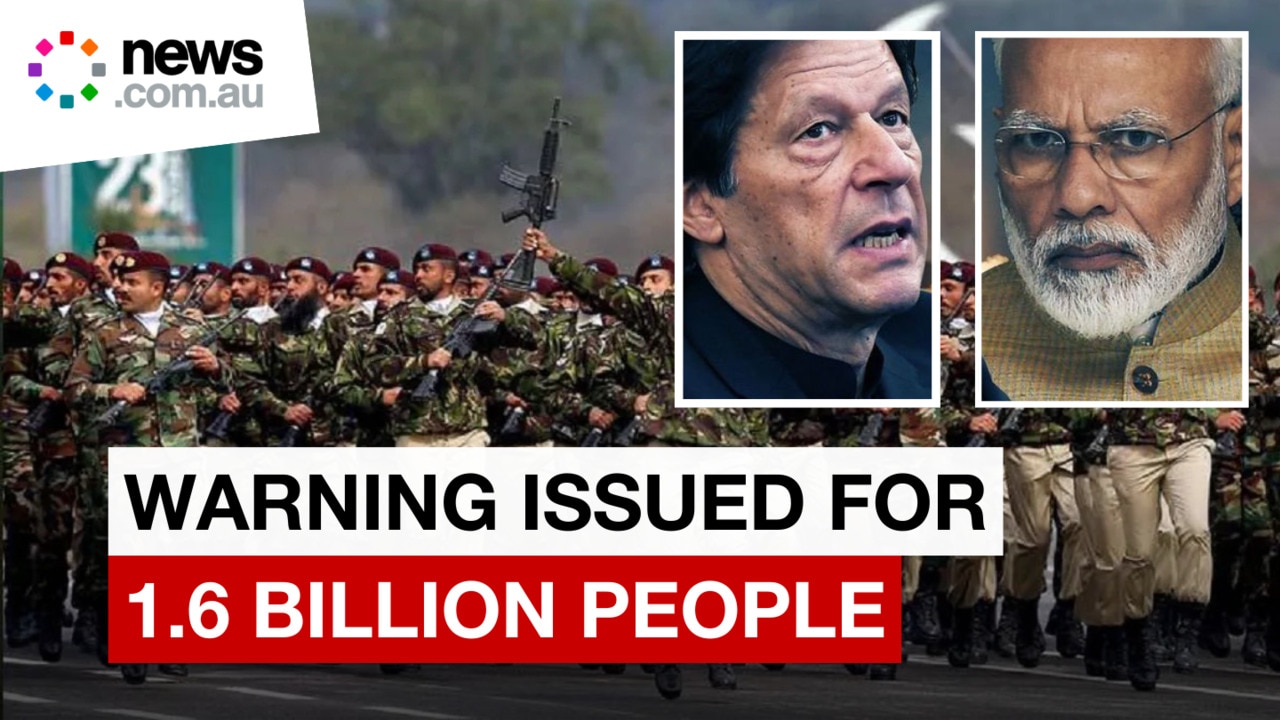
Innovation
Don't miss out on the headlines from Innovation. Followed categories will be added to My News.
Two tough-talking leaders. Two nations struggling with internal turmoil. Both armed with nuclear weapons.
It’s quickly adding up to be a zero-sum crisis.
India and Pakistan are again on the brink of war after a terrorist attack in the troubled state of Kashmir killed 26 tourists — mostly Hindu Indians — and triggered a deadly blame game between the disgruntled neighbours.
“India will identify and punish every terrorist and their backers. We will pursue them to the ends of the earth. India’s spirit will never be broken by terrorism. Terrorism will not go unpunished.”
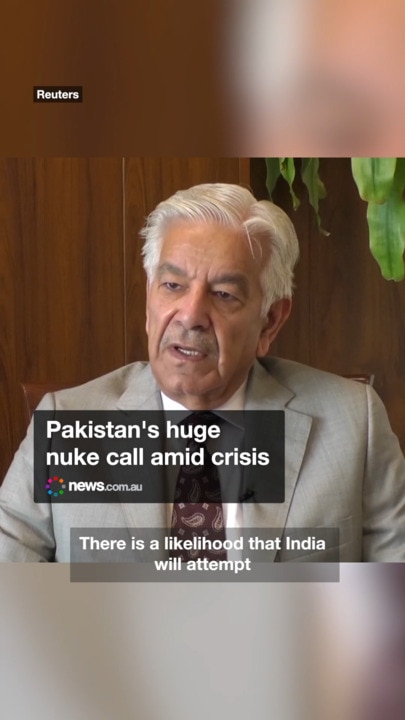
These words, proclaimed by Indian Prime Minister Narendra Modi, were spoken in English.
As such, it was a message intended for a global audience.
For its part, Pakistan was dismissive.
“In the absence of any credible investigation and verifiable evidence, attempts to link the Pahalgam attack with Pakistan are frivolous, devoid of rationality and defeat logic,” reads a statement from the Office of Pakistan’s Prime Minister Shehbaz Sharif.
Beneath the bluster, the plight of Kashmir is already being forgotten.
The Hindu-ruled (but mostly Muslim) Principality of Kashmir was given the choice of becoming a semi-independent state of either Pakistan or India by the retreating British Empire in 1947.
It chose India in the face of tribal incursions from Pakistan.
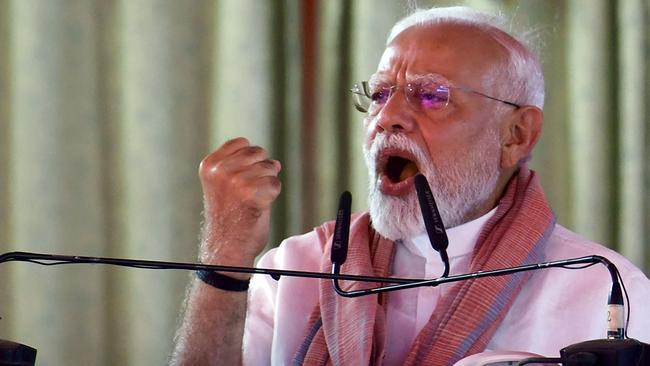
But Prime Minister Modi has, in recent years, suspended the region’s special freedoms and allowed his Hindu nationalist supporters to impose their ways on the culturally distinct populace.
“India’s hard-line policies under Modi and the imposition of direct central rule on Kashmir have fuelled deep alienation in the Muslim-majority region,” argues Yale University lecturer Sushant Singh.
That backlash, he adds, has triggered much broader tensions that has been simmering beneath the surface for decades.
“With Modi’s rhetoric leaving little room for compromise, Pakistan’s military leadership under pressure to respond forcefully to any Indian strike, and China’s growing involvement in the region, events in Kashmir risk triggering uncontrollable escalation,” he said.
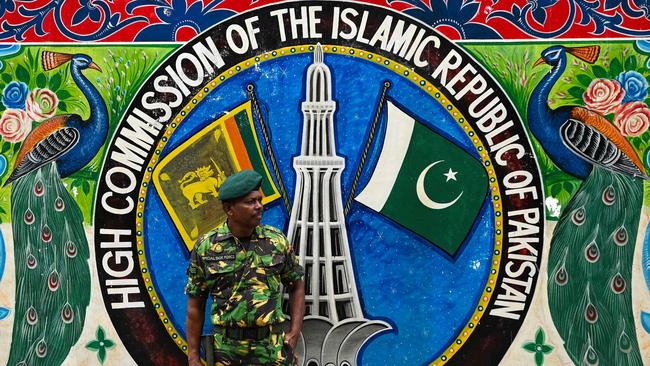
Kashmir Conundrum
“At the heart of the Kashmir crisis is a combustible mix of religious nationalism, authoritarian governance, and unresolved political grievances,” explains Mr Singh.
Mr Modi stripped Kashmir, India’s only Muslim-majority state, of its constitutional privileges in 2019.
Local elections have been suspended. Curfews, media controls and political arrests have become commonplace.
“The reality on the ground remains one of pervasive fear and violence,” adds Mr Singh.
“Kashmir has endured recurring militant attacks, including the killing in Pahalgam, and the continued imposition of draconian laws and heavy security deployments.”
Responsibility for the Pahalgam attack has been claimed by a group calling itself The Resistance Front (TRF), which analysts believe to be an offshoot of Pakistan’s Lashkar-e-Taiba militant group.
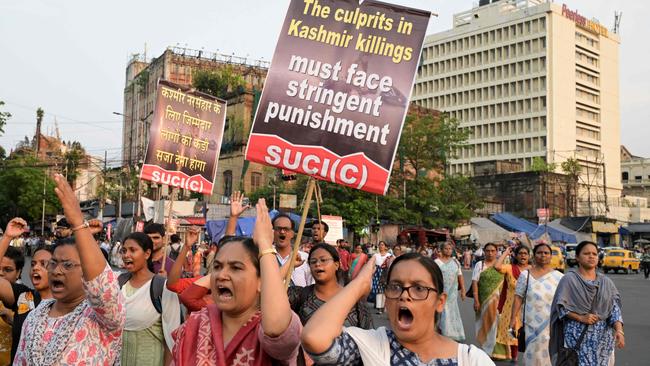
The TRF has accused Indian Hindus of a co-ordinated campaign to establish settlements in Kashmir and overwhelm its indigenous population.
PM Modi has seized on the TRF’s Pakistani ties to label the incident as a cross-border attack backed by Islamabad.
He’s expelled Pakistani diplomats. He’s closed the border. He’s ordered the suspension of the Indus Waters Treaty.
ashmir is inseparable from his broader political strategy, in which he projects strength as a Hindu nationalist strongman, promises violent retribution against enemies, and seeks to rally domestic support through exploiting moments of national security crisis,” Mr Singh states.
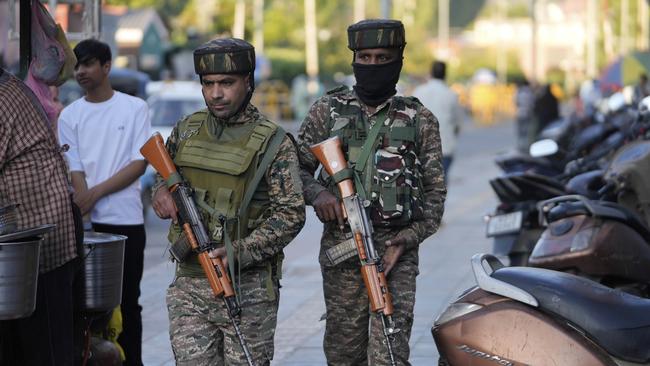
Pakistan’s Power Plays
Islamabad has condemned suspension of the Indus water agreement as an “act of war”.
It has also closed its airspace to Indian flights and suspended all bilateral treaties, including a 1972 peace treaty that laid out a path towards a normalised relationship between the two nations.
But Pakistan is in the grip of a severe internal crisis.
The ruling military is deeply unpopular. Former prime minister and famous cricketer Imran Khan is behind bars. And drought and economic turmoil is unsettling the population.
“The military could use conflict with India over Kashmir to shore up its legitimacy, as it has often done in recent decades,” Mr Singh noted.
Low level exchanges of gunfire have since reportedly flared along the “Line of Control”, an unofficial border that has divided Kashmir since the first Indo-Pakistan war of 1947-48.
Now, Pakistan’s defence minister Khawaja Muhammad says he expects an Indian attack.
“We have reinforced our forces because it is something which is imminent now,” he said.
“So in that situation some strategic decisions have to be taken.”
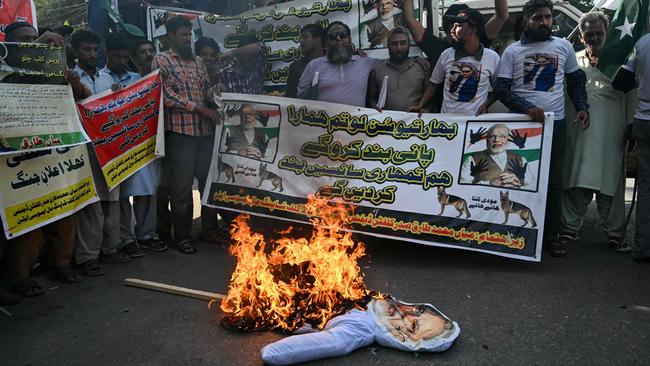
But 20 years of intermittent terror attacks means tough-talking Mr Modi must put up, or shut up.
In 2001, India’s Parliament House was attacked by gunmen. Six police, two security guards and a gardener were killed.
Further incidents in 2016 and 2019 were countered by Indian “surgical strikes” on Pakistani targets and each response has set the bar higher for the next to be taken seriously.
“Today, as calls for ‘limited war’ resurge, India must realise that symbolic military action alone cannot coerce a nuclear-armed adversary that views terrorism as a low-cost, high-reward tool,” argues Princeton University security studies analyst Dr Sajid Farid Shapoo.
“Still, voices that believe that a calibrated military response could coerce Pakistan to rein in cross-border terrorism and dismantle the terror infrastructure are getting louder.”
The China Factor
“Despite its internal political turmoil, Pakistan retains a robust nuclear deterrent and support from China, which has its own interests in Kashmir,” warns Mr Singh.
“China’s involvement adds a dangerous new dimension to the crisis, raising the spectre of a two-front commitment for India and complicating any calculations of escalation with Pakistan. On Sunday, Beijing expressed its ‘support’ for Pakistan’s ‘sovereignty’ and ‘legitimate security concerns’.”
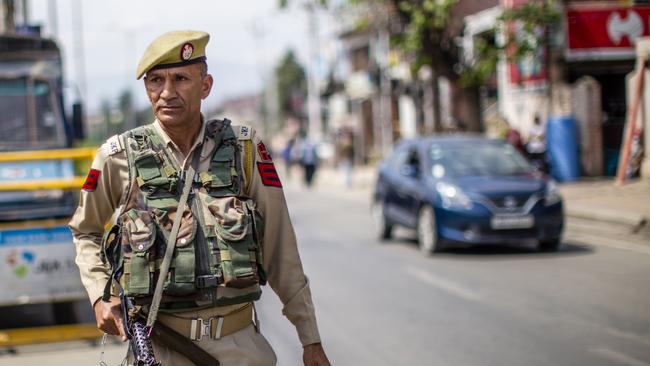
Pakistan and India have a long history of tit-for-tat military strikes.
Each incident has failed to compel one side or the other to back down. And all have raised the spectre of nuclear conflict.
The problem, Princeton’s Dr Shapoo argues, is that a “limited” war requires agreement and understanding between the two opposing forces. And that doesn’t exist.
“A more forceful Indian strike could erode Pakistan’s sense of deterrence, potentially prompting the use of tactical nuclear weapons to reassert deterrence,” he adds.
“Inaction, too, carries risk: it may embolden further attacks, rendering Pakistan vulnerable to increasingly punitive strikes.”
New Delhi earlier this week made a show of sending its aircraft carrier, INS Vikrant, and three escorting warships north towards Pakistan as the crisis intensified.
It is reportedly considering the pros and cons of artillery and missile strikes, air strikes on the Pakistani bases of suspected militants, and even a move in force against the Line of Control.
But will Islamabad play by New Delhi’s rules?
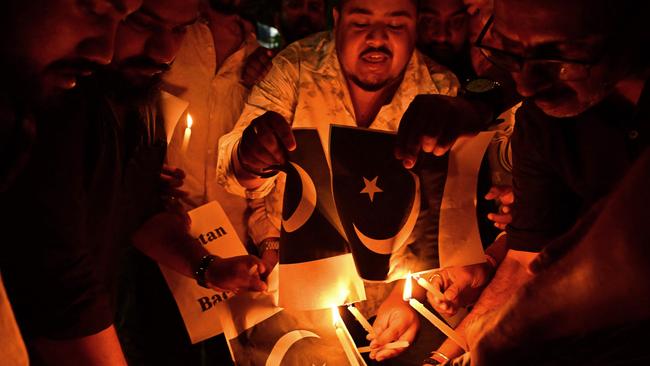
“Pakistan military’s doctrine of “quid pro quo plus” retaliation means that any Indian strike, no matter how limited, will be met with a response designed to inflict equal or greater pain,” Singh warns.
“That imperative risks fuelling rapid uncontrollable escalation.”
Also at play is China’s significant military presence.
It has some 25,000 troops stationed on its Himalayan border with India. Another 50,000 - along with artillery and air support - are in surge positions supported by new roads, bridges and airfields.
“In this new phase of confrontation, India’s goal should be punitive clarity, not emotional escalation; a long game, not a loud one,” Dr Shapoo argues.
“And that may well be the sharpest form of power.”
Jamie Seidel is a freelance writer | @jamieseidel.bsky.social
Originally published as India and Pakistan: Nations on brink of ‘nuclear war’



